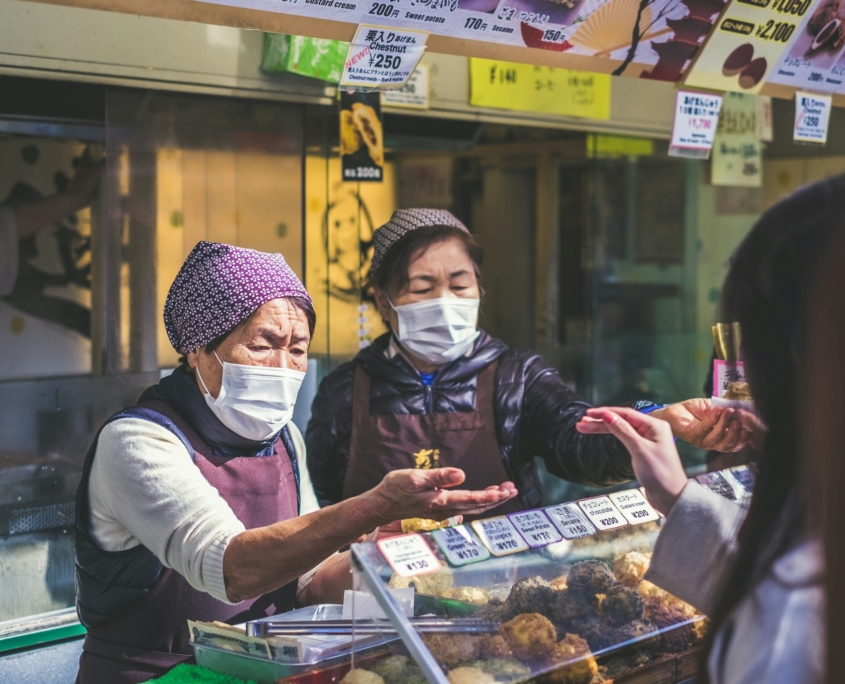Single Elderly Women in Japan Struggle with Poverty
 A recent survey conducted by Tokyo Metropolitan University Professor Aya Abe reveals that 44.1% of single women aged 65 and older in Japan are living in poverty. This rate is notably higher than their male counterparts and is nearly equivalent to the 44.5% poverty rate among working-age single-parent households.
A recent survey conducted by Tokyo Metropolitan University Professor Aya Abe reveals that 44.1% of single women aged 65 and older in Japan are living in poverty. This rate is notably higher than their male counterparts and is nearly equivalent to the 44.5% poverty rate among working-age single-parent households.
Japan faces growing concerns about its aging population, particularly single elderly women who are at a higher risk of poverty. Current data suggests a stark contrast in poverty risks between genders and marital statuses, with elderly women more likely to struggle financially. Projections indicate that poverty rates for elderly women could increase from 22% to 25% and for divorced or unmarried women, the rate could spike to 50%. In contrast, only about 10% of elderly men are expected to fall into poverty. Widowhood offers limited financial relief, often restricted to bereaved family pensions.
Economic Inequality and Labor Market Challenges
The 2022 Ministry of Health, Labour and Welfare report in Japan reveals significant gender and age disparities in “one-person households.” Men constitute 35.9% of these households, with the largest age group being 70 to 74 years old, accounting for 28.7% of single male households. In contrast, women make up 64.1% of one-person households, with the largest demographic being those aged 85 and over, representing 24.1% of single female households.
Despite a doubling of income over the past two decades, Japanese women still earn significantly less than their male counterparts. As of Feb. 2023, the Statistics Bureau of Japan reported that the average monthly income for women was ¥83,896 ($630), compared to ¥345,645 for men. This disparity is exacerbated by the fact that 70% of female workers hold part-time or nonpermanent positions, which typically offer lower pay and limited opportunities for advancement. Consequently, Japan’s ranking suffered in the World Economic Forum’s 2022 Global Gender Gap report, ranking 116th out of 146 countries, primarily due to wage inequality and a scarcity of women in senior management roles.
Societal Norms and Systemic Disadvantages
“Social norms that assume women are being supported by men have led to a system that doesn’t consider women living alone—and persist even today,” said Abe, “Attention on ‘women’s poverty’ often focuses on young women and single mothers. Policies also revolve around child support and are not essentially supporting women.” This disparity stems from the post-war pension system, which was based on the assumption that women would leave the workforce to raise children while men, employed full-time, would secure generous benefits. Consequently, the system inadequately supports single, divorced or never-married women in their later years.
Policy Recommendations and Future Directions
In Japan, the public pension system covers individuals from age 20 to 59, with basic pension benefits starting at age 65, contingent on a minimum of 10 years of contributions. Full benefits are available after 40 years of contributions. Enhancing the income security function of this system can potentially mitigate the risk of elderly poverty.
A RIETI report recommended three frameworks for improving Japan’s pension system. Firstly, it suggested expanding employee health insurance to cover nonpermanent, part-time workers, thereby ensuring more comprehensive protection and reducing the risk of exclusion from the pension safety net. Secondly, raising the pensionable age could increase benefits for those currently receiving low amounts, more effectively addressing elderly poverty. Finally, implementing partial reforms to the existing system could significantly alleviate poverty without the need for a complete overhaul.
The Japanese government is actively promoting “lifelong work” to alleviate the country’s significant labor shortage and to encourage elderly citizens to contribute more toward their medical and nursing care expenses. To support this initiative, the Fiscal System Council is evaluating a proposal to raise the pensionable age to 68. Although the official retirement age in Japan is 65, the country has the world’s second-highest rate of senior employment, with many older adults working informal part-time jobs to supplement their pensions.
Looking Ahead
Japan’s aging population, especially single elderly women, faces severe economic challenges. Despite efforts to improve income security, significant disparities remain in wages and employment opportunities. With proposed reforms like raising the pensionable age and expanding insurance coverage, Japan aims to address these ongoing issues and enhance financial stability for its elderly citizens, striving to reduce poverty and improve their quality of life.
– Cindy Hong
Cindy is based in Milpitas, CA, USA and focuses on Global Health for The Borgen Project.
Photo: Unsplash
